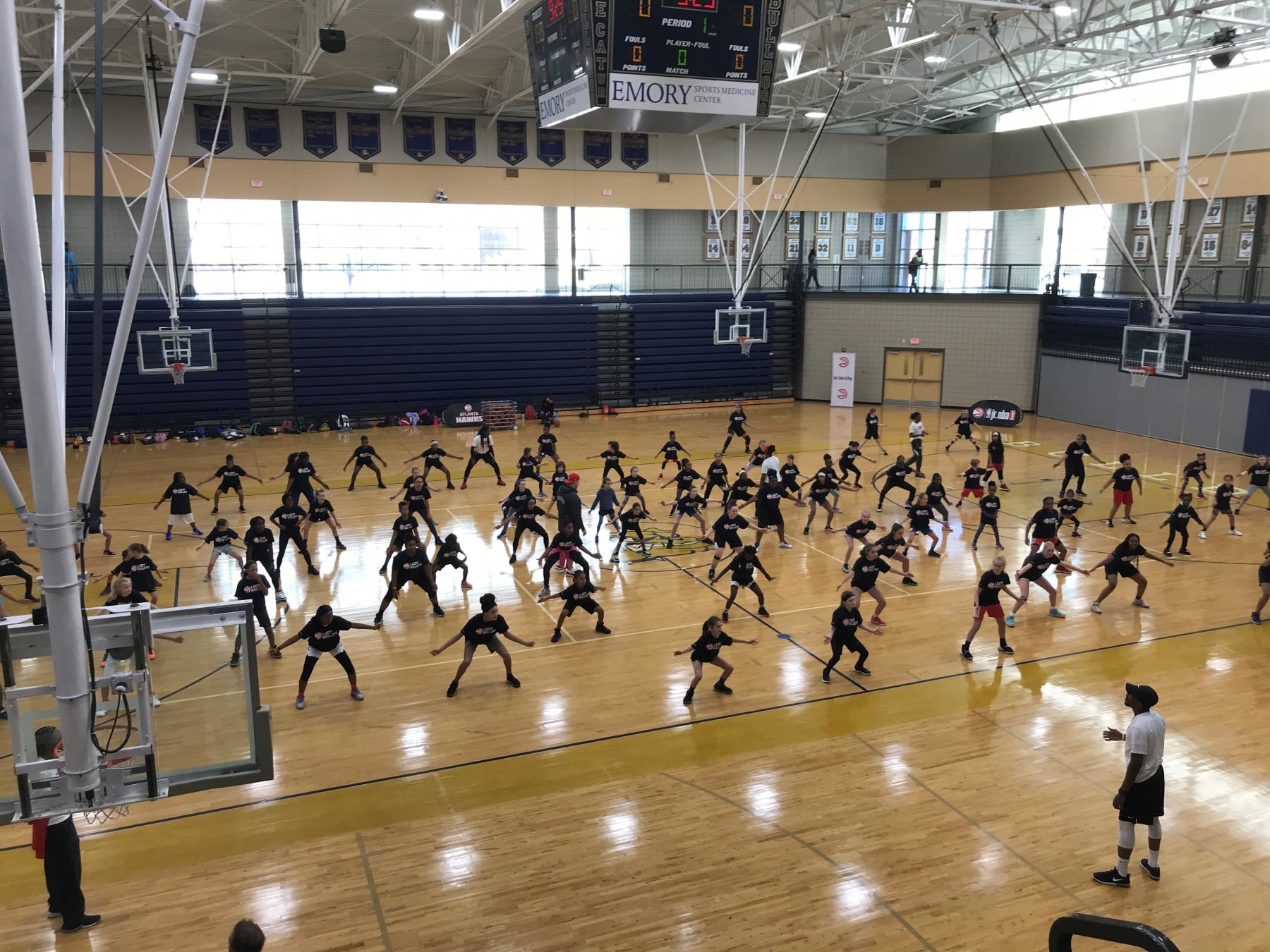On New Year’s Eve, the basketball gym at Decatur High School was packed with more than 90 young girls learning the game of basketball.
They all wore black T-shirts with the words “Learn. Develop. Compete.” printed on the back.
On the front, the words “Lady Ballers.” It’s the name of a program and clinic organized by the Atlanta Hawks that aims to persuade more girls to play basketball.
According to a study by the Aspen Institute, girls have become more active in youth sports over the past decade. And it’s not just for exercise. It’s also for the self-confidence that can often come from playing the game.
Andraya Carter, a former University of Tennessee basketball player who is now a television analyst, knows the impact a clinic like this can have.
“All the coaches, their big smiles, they’re high energy, and I think it’s important for girls to see that that’s cool,” Carter said. “It’s cool to work hard. It’s cool to put yourself out there to be high energy and be proud of your work, so I think confidence is going to be the biggest thing.”
After the drills were over, Carter moderated a panel, during which she and three other women shared how they benefited from playing sports.
Nicki Collen, head coach of the WNBA’s Atlanta Dream, mainly competed against boys growing up. Now, she says, girls have more opportunities to play basketball, but they may not always take advantage.
“Girls are being pulled in different directions, whether it’s different sports or different areas in life, or just staying home and playing video games and watching TV,” Collen said. “And so to see them out here playing and competing was really, really awesome.”
One of the organizers of the clinic is Hawks vice president of basketball development Jon Babul. He played in college at Georgia Tech and is the father of an 8-year-old girl.
He says in the past, when the Hawks had co-ed youth basketball camps, the boys vastly outnumbered the girls. And that could be intimidating.
“When they walk into a Lady Ballers clinic and see all girls — all their age and female coaches — you can see it on their face,” Babul said. “The confidence, the smile. And if they have fun and they’re smiling while playing the game of basketball, I’m a big believer they’re going to come back and play more. “









